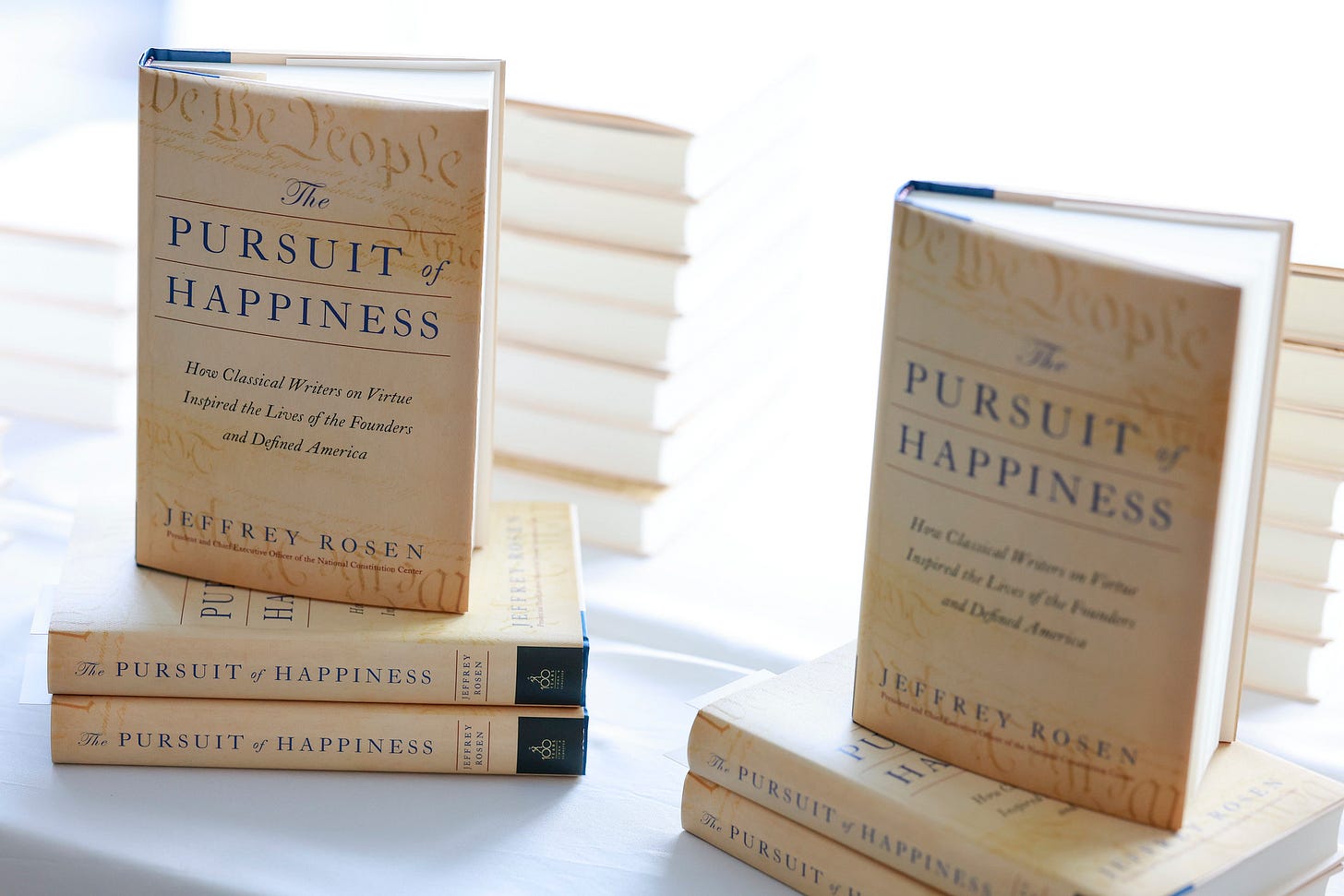What Virtues Does Democracy Demand?
Self-improvement (the American founders' version)
In the class I’m teaching this semester on democracy, one surprising thing has stuck out to me: Nearly all of the political theorists we’re reading—from Aristotle to Machiavelli to the authors of the Federalist papers—concern themselves not just with what makes for good government, but with what makes a virtuous person.
Some of those authors believe a virtuous citizenry is required for democracy to function; others argued that democracy would make people more or less virtuous. Some recent political scientists, though, maintain it’s not that important.
Machiavelli, famously, argued in The Prince that the “virtues” needed to make an effective ruler—cruelty, cunning, deceit—were very different than the virtues required to make a good human.
In his new book, The Pursuit of Happiness, author Jeffrey Rosen explores the American founders’ own obsession with virtue and self-improvement:

Virtue, of course, is a sticky topic. Some of that stickiness:
Republican leaders were focused on personal virtue in the 1990s, when Bill Clinton’s carousing spilled into public view. They seem less focused on it today, or at least to apply it inconsistently (consider the indiscretions of Donald Trump vs. Lauren Boebert).
Still, if you go googling around about virtue, you’re likely to end up in center-right corners of the internet.
Virtue and virtue ethics have fallen out of fashion, despite having been a core part of American education until the middle of the twentieth century, according to Rosen.
Rosen attributes that in part to the decline of religion; it might also be that the rise of a more diverse America, and one in which more voices are heard, has exposed a wider variety of beliefs about what virtues are important.
As a result, it might be harder to talk about virtue today, than ever. But that doesn’t make it less important.
Many conversations about virtue still center around the same authors—Western, white, and male. It has made me wonder what a more well-rounded conversation about virtue would look like.
Go Deeper: Check out Rosen’s recent interview on The Realignment podcast:



